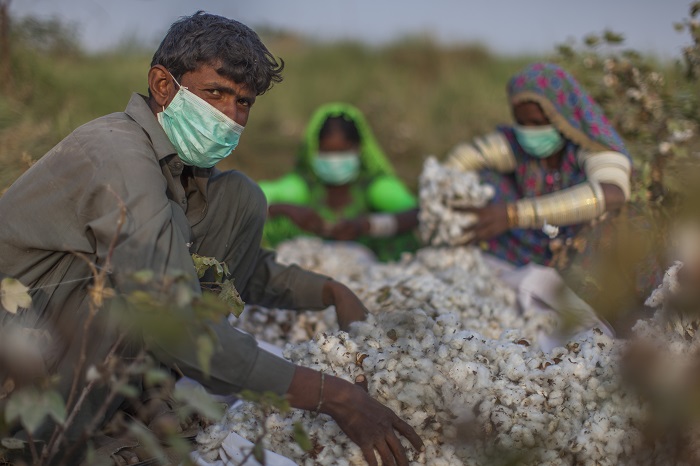In 2004, a couple of years after I started work for CABI, I heard a talk
by Paul Chinnock, then part of the Cochrane Collaboration, (conduct systematic reviews of the effects of healthcare) and now editor of Tropika.net. Essentially this talk outlined
the need for evidence-based interventions for developing countries: amongst other suggestions, it called for a new
method to analyse evidence from small scale studies and for every Cochrane review to identify the most effective
intervention for both resource-poor and resource-rich settings.
Why was such an evidence base being provided
to the developed world by Cochrane but not to developing countries? To
understand the reason for this, you need to know how they work.
Cochrane Collaboration
The Cochrane Collaboration pioneered a painstaking
technique called “systematic review”, a technique which analyses the effects of
a drug or healthcare intervention using data drawn from multiple medical research
trials, providing a larger body of results from which to draw their conclusions.
From their analysis, they can identify not only what works (reconciling previous
conflicting results) but also rare or unforeseen events. This has given rise to
the burgeoning field of evidence-based medicine and the proliferation of
systematic reviews in other fields beyond medicine.
To demonstrate its importance to us, I only
need to point to (17.9.2010) today’s news “Supplements
for osteoarthritis do not work”. The authors of this paper conducted a
systematic review looking at 10 large scale trials to reach the conclusion that
glucosamine- and chondroitin- sulphates do not improve joint pain. Previous results had been conflicting. Current
popular usage & prescribing in countries like Switzerland were down to evidence
derived “from small scale studies of inferior quality in the 1990’s”, said Professor Pune on Radio4.
The reason why few Cochrane reviews in 2004
addressed the developing country setting, was because there were so few trials which
met their strict criteria for inclusion (you need randomized controlled trials, RCTs).
Existing reviews were not relevant because they were based on patients atypical
to the developing world or they came up with interventions which could not be implemented
in resource-poor situations. [Developing country patients typically present
late, self-medicate, are often malnourished or anaemic, are unable or unwilling
to comply with treatment and experience health care provision where referral is
difficult, has a lack of trained staff, poor infection control or a lack of
follow-up.]
These days Cochrane do undertake systematic
reviews on developing country topics (e.g. iron in malaria, diarrhoea and zinc)
and are experiencing an increasing workload as WHO is using it for making
evidence-based policy guidelines, and others for intervention and procurement
decisions. But they are still limited by
the amount of quality controlled trials undertaken.
Global Health Clinical Trials Programme
AT the RSTMH 2010 meeting in sunny
Liverpool (September 8-10), I discovered a solution in the new collaboration GlobalHealthTrials.org, an
initiative based in Oxford but involving groups
running trials on 3 continents: Africa, Asia and Latin
America. Their aim is to “promote and make easier
the conduct of non-commercial clinical trials across all diseases in
resource-poor settings”.
The collaboration is in the form of a web
platform open to anyone running trials, and provides guidance articles,
resources such as templates, training and a forum to exchange ideas on best
practice. Such an effort will encourage developing country researchers to
conduct their own trials, confident in meeting accepted international standards
because they will have been following the protocols and advice from experienced
groups. Standardization and improved quality will surely result which in turn
must increase the number of systematic reviews focused on developing country
topics.
Whereas Paul Chinnock called for a way to
analyse small-scale trials from developing countries, this programme will ultimately
increase the number of RCTS conducted in them . Its’ a different approach but the endpoint
will be the same: identifying effective therapies that are tailored to
resource-poor settings.
There are plans for e-learning courses to
take researchers through all the trial steps and processes and a CPD scheme for
career development. Its’ to be an open collaboration, a self-help group, who
hope to emulate the success of Cochrane, but I hope that the findings of the
triallists take less time to be taken up by the establishment. Currently, the
consensus on Cochrane’s excellent analysis is that it can take up to 20 years
to get into the textbooks & thereby change general medical practice!
Cochrane itself have now acted to speed the
“impact of research & induce change” in developing countries, by bringing
its results to the attention of government policymakers: it is using
communication experts and the use of local reviewers to influence at
governmental level. I heard about this
at FESTMIH Verona 2009, where I had the pleasure of experiencing a truly lucid
explanation of how Cochrane works to get “research into practice”, hosted by
the Cochrane Infectious Diseases group, with all the examples focused on
developing country topics!
Web-based resources
Incidentally there are other web-based “self-help”
resources like this: there is the GAVI
Knowledge bank www.harvesting-evidence.org
which addresses barriers to vaccine distribution & disseminates information
of “what works and what doesn’t ” so that a country’s
immunisation managers can improve vaccination and services.
And the M-health alliance (UN Foundation,
Rockefeller Foundation and commercial partners) are developing a free central
website for all players using mobile phone tech to deliver improved health:
they will be able to upload data & projects, managing it onsite, and identify
“what’s out there” because they will be able to browse the “open access” part
of the site, improving collaboration & reducing duplication of effort.
Why do I call it self-help? What I mean by
self-help is that this is coming from the research community as opposed from on
high and depends on the goodwill to volunteer expertise or to work together.
This is how the Cochrane Collaboration operates.
References from Global Health
In 2003, there were just 145 non-Cochrane
systematic reviews indexed in Global Health CABI's public health database. By 2009, it had risen to 780,
indicating the importance of evidence-based public health today. Below are just a handful of the many systematic
reviews relevant to resource-poor settings which have been published so far in
2010, with links to our public health resource Global Health.
If you can't access them through Global Health in your institutional library (ASK them why not!), you should sign up to our monthly e-newsletter "Global Health Knowledge Base", which gives free access for 1 week each month, alongside research, news and blogs.
- New world cutaneous leishmaniasis: updated review of current and future diagnosis and treatment.
Mitropoulos, P.; Konidas, P.;
Durkin-Konidas, M.; Elsevier, New York, USA, Journal of the American Academy of
Dermatology, 2010, 63, 2, pp 309-322 - Scaling up human papillomavirus vaccination: a conceptual framework of vaccine adherence.
Katz, I. T.; Ware, N. C.; Gray, G.;
Haberer, J. E.; Mellins, C. A.; Bangsberg, D. R.; Garland, S. M.; Brotherton,
J. M. L.; Fairley, C. K.; Gertig, D. M.; Saville, M.; CSIRO Publishing,
Collingwood, Australia, Sexual Health, 2010, 7, 3, pp 279-286 - Is
oral administration of Chinese herbal medicine effective and safe as an
adjunctive therapy for managing diabetic foot ulcers? A systematic review and
meta-analysis.
Chen Min; Zheng Hui; Yin LiPing; Xie
ChunGuang; Mary Ann Liebert, Inc., New Rochelle, USA, Journal of Alternative
and Complementary Medicine, 2010, 16, 8, pp 889-898 - Reduction
in the proportion of fevers associated with Plasmodium falciparum parasitaemia
in Africa: a systematic review.
D'Acremont, V.; Lengeler, C.; Genton, B.;
BioMed Central Ltd, London, UK, Malaria Journal, 2010, 9, 240 - Treatment
of hepatitis C in children: a systematic review.
Hu Jia; Doucette, K.; Hartling, L.;
Tjosvold, L.; Robinson, J.; Public Library of Sciences (PLoS), San Francisco,
USA, PLoS ONE, 2010, July, pp e11542 - Poverty
and common mental disorders in low and middle income countries: a systematic
review.
Lund, C.; Breen, A.; Flisher, A. J.;
Kakuma, R.; Corrigall, J.; Joska, J. A.; Swartz, L.; Vikram Patel; Elsevier
Ltd, Oxford, UK, Social Science & Medicine, 2010, 71, 3, pp 517-528 - Effects
of Ginkgo biloba in dementia: systematic review and meta-analysis.
Weinmann, S.; Roll, S.; Schwarzbach, C.;
Vauth, C.; Willich, S. N.; BioMed Central Ltd, London, UK, BMC Geriatrics,
2010, 10, 14
Related News & Blogs
3 fast ways to find super-specialized research
We all know that essay deadline dread; you’ve got a rough idea, no clue where to find the right research, and less and less time to get everything (citations included) sorted. Never fear, CABI’s here! In this blog, we share our 3 top tips for finding s…
10 June 2021



